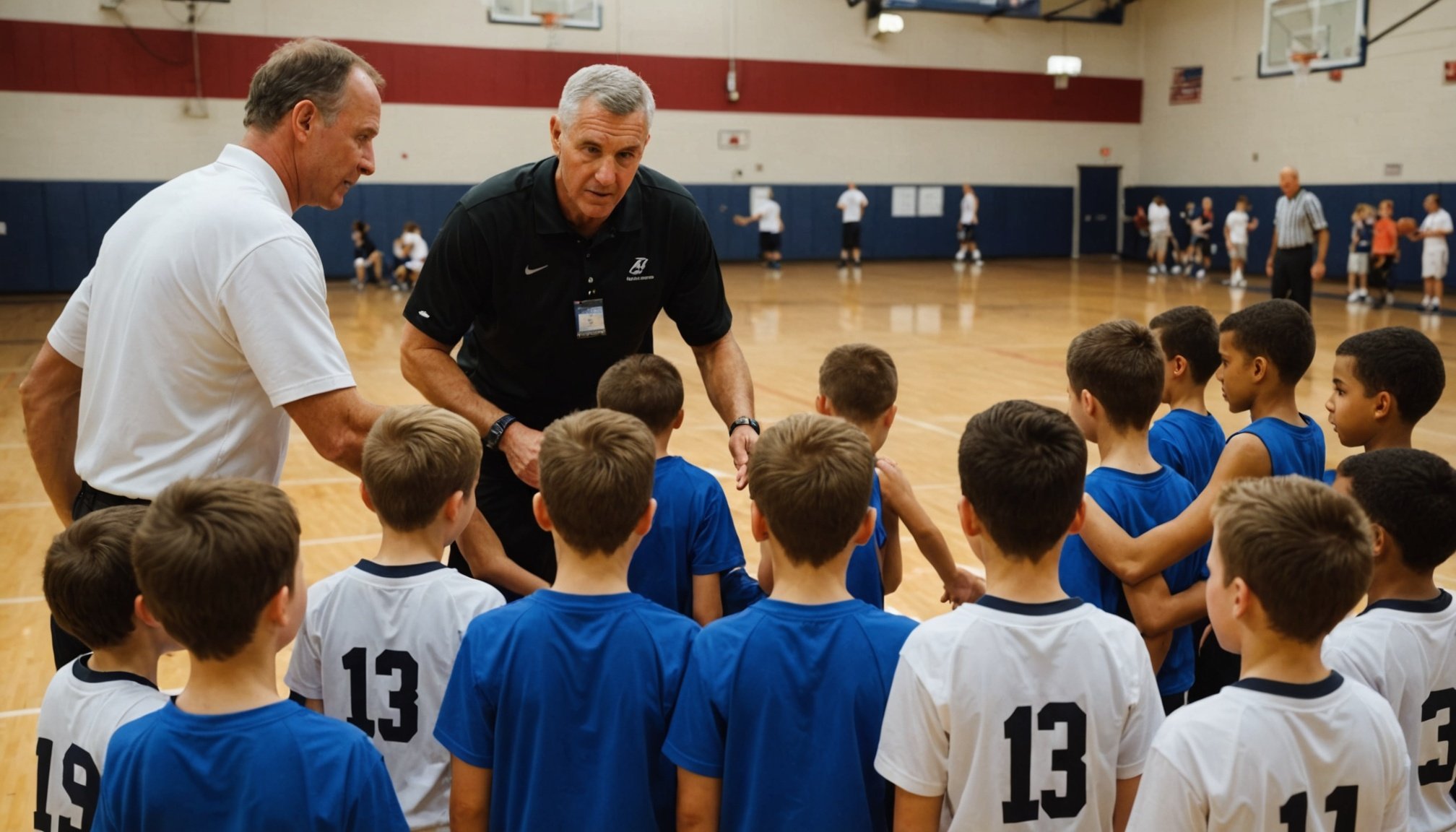Basketball is not just a game; it’s a journey that starts from a young age, guided by the hands of skilled youth coaches. As the sport continues to grow worldwide, there is a pressing need to cultivate proficient coaches who can mentor the upcoming generation of players. This article dives into the best practices for developing youth basketball coaches, equipping them with the skills to inspire, teach, and lead. We’ll explore how coaches can create a nurturing environment that harnesses young talents into well-rounded athletes.
Understanding the Role of a Youth Basketball Coach
To become an effective coach in the world of youth basketball, one must first understand the multifaceted role that coaching entails. Being a coach is not just about knowing the game; it’s about teaching life skills, fostering teamwork, and instilling a love for basketball in young players.
Also to see : How can aspiring basketball players improve their shooting technique effectively?
At the core of coaching lies the ability to communicate effectively with young athletes. Youth coaches must adapt their communication to suit the developmental stages of their players, using clear and concise language that encourages positive reinforcement. A coach’s words can shape a young player’s attitude toward the game, making it imperative to choose them wisely.
Moreover, a youth basketball coach must wear multiple hats, acting as a mentor, motivator, and strategist. They need to build strong relationships with players to understand their strengths and weaknesses. This relationship fosters trust, making it easier for players to absorb guidance and improve their skills.
Topic to read : How does team chemistry influence success on the basketball court?
Furthermore, understanding the physical and psychological needs of youth players is essential. Coaches must be equipped to handle the various challenges that come with coaching diverse groups of young athletes. This involves designing age-appropriate drills and practices that are both engaging and educational. It also means being aware of the psychological impacts of competitive sports on kids and addressing them with sensitivity.
Building Fundamental Basketball Skills and Drills
Focusing on fundamental skills is crucial for any youth basketball coach aiming to develop talented players. The foundation of any great basketball player begins with mastering the basic skills of the game: dribbling, passing, shooting, and defense.
Dribbling is often the first skill taught, as it is essential for maintaining possession of the ball. Coaches should introduce a variety of drilling exercises designed to improve ball-handling skills. These exercises can include simple dribbling drills that focus on control and speed, as well as more complex drills that incorporate changes in direction and pace.
Passing is another critical skill. Coaches should teach young players how to execute different types of passes, such as bounce passes and chest passes, emphasizing accuracy and timing. Team-based drills can help players understand the importance of communication and teamwork when passing the ball.
Shooting requires precision, which calls for repeated practice. Coaches should introduce shooting drills that focus on form, balance, and follow-through. Encouraging players to practice both stationary shots and shots on the move can strengthen their overall shooting ability.
Defensive skills are equally important. Coaches should design drills that teach players how to position themselves defensively, as well as how to anticipate their opponent’s moves. By instilling these fundamental skills at an early age, coaches can prepare players for more advanced techniques as they progress in their basketball journey.
Creating a Positive and Inclusive Team Environment
A successful youth basketball program is one where players feel valued and supported. Creating an inclusive team environment is one of the most important responsibilities of a youth basketball coach. This involves promoting a culture of mutual respect, cooperation, and encouragement among players.
Coaches need to be proactive in fostering inclusivity by celebrating diversity within their teams. Each player brings unique perspectives and skills, and recognizing these differences can enhance team dynamics. Coaches should strive to create a sense of belonging for all players, regardless of their skill level or background.
Positive reinforcement is a powerful tool in a coach’s arsenal. By acknowledging players’ efforts and progress, coaches can build their confidence and motivation. Constructive feedback should be offered in a manner that encourages improvement without diminishing a player’s spirit.
Moreover, it’s essential for coaches to set clear expectations and goals. When players understand what is expected of them, they are more likely to work collaboratively towards common objectives. Coaches should ensure that these goals are attainable, fostering a sense of achievement as players reach their milestones.
Lastly, a coach should encourage open communication within the team. Creating opportunities for players to express themselves and share their thoughts can strengthen team cohesion, leading to a more supportive and collaborative environment. By fostering a positive team culture, coaches can ensure that their players not only succeed on the court but grow as individuals off the court.
Balancing Competition and Fun in Youth Basketball
One of the greatest challenges youth basketball coaches face is maintaining a balance between competition and fun. While it’s important for young players to learn about competition, the primary focus should be on enjoyment and personal development.
To strike this balance, coaches should emphasize the joy of playing basketball. Creating an environment where kids can play without fear of judgment encourages them to experiment and learn from their mistakes. This approach not only enhances their skills but also helps cultivate a lifelong love for the game.
Competitive games and drills should be designed to promote teamwork and sportsmanship. Coaches can introduce friendly competitions during practice sessions that build camaraderie and encourage players to support one another. These activities can be an excellent way to teach valuable life lessons about fair play and perseverance.
Additionally, rotating roles and positions during practice can ensure that every player gets an opportunity to experience different aspects of the game. This not only prevents burnout but also helps players gain a holistic understanding of basketball.
It’s also vital to celebrate individual and team successes, no matter how small. Recognizing achievements can boost morale and encourage players to continue improving. By finding the right balance, coaches can create a positive and enjoyable basketball experience for every young player.
Developing effective youth basketball coaches requires a comprehensive approach that blends skill enhancement with emotional intelligence and team dynamics. Through understanding their multifaceted role, imparting fundamental basketball skills, creating an inclusive team environment, and balancing competition with fun, coaches can shape young players into not just skilled athletes, but also positive and confident individuals.
By investing time in these best practices, coaches not only nurture the next generation of basketball stars but also contribute significantly to the growth of the sport. As the journey continues, it’s crucial for coaches to remain passionate and committed, ensuring that each player they guide leaves the court with valuable life lessons and a lifelong love for the game.










